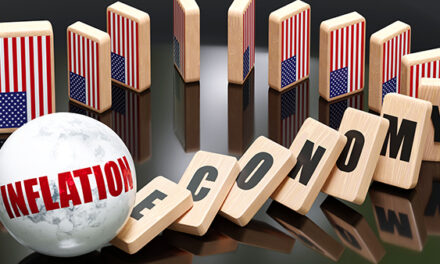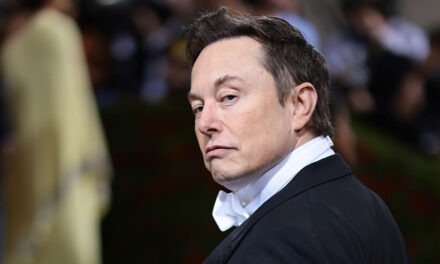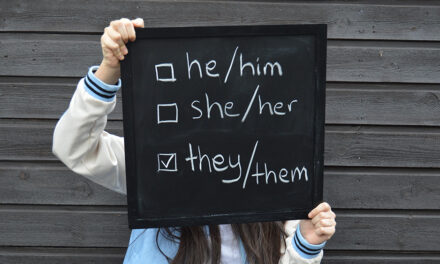We support our Publishers and Content Creators. You can view this story on their website by CLICKING HERE.
Meta’s free speech shift has sent shockwaves through Europe’s political establishment
- Meta CEO Mark Zuckerberg’s decision to drop third-party fact-checkers in the U.S. has alarmed European Union officials, who see it as a potential threat to the integrity of public discourse.
- The controversy highlights the growing divide between Europe’s stringent regulatory framework, such as the Digital Services Act (DSA) and the tech industry’s evolving approach to free speech.
- German official Klaus Müller and French Foreign Minister Jean-Noel Barrot have both criticized Meta’s move, emphasizing the potential sanctions for non-compliance with the DSA.
- The debate is part of a broader discussion about social media’s role in shaping public opinion, with Elon Musk’s permissive approach on X contrasting with Europe’s more restrictive stance on speech.
- Musk’s comments on X suggest a growing transatlantic divide, with the U.S. championing free expression and Europe prioritizing collective security and social cohesion.
Meta CEO Mark Zuckerberg’s recent announcement of a policy shift toward free speech on the company’s social platforms has sent shockwaves through Europe’s political establishment.
The move, which includes dropping third-party “fact-checkers” in the U.S., has prompted swift reactions from European Union officials and lawmakers who fear the policy could extend to Europe. As Meta follows in the footsteps of X in loosening content moderation, the debate over free speech, censorship and the role of tech giants in shaping public discourse has reached a boiling point. (Related: Vindication for independent media: Zuckerberg admits fact-checkers were politically biased, embraces free speech.)
The clash highlights a growing divide between Silicon Valley’s evolving approach to online expression and Europe’s stringent regulatory framework, raising fundamental questions about the future of democracy in the digital age.
EU officials push back against Meta’s policy shift
Meta’s decision to drop third-party fact-checkers, while seemingly minor in the grand scheme of its operations, has triggered alarm among European policymakers. Officials in several EU countries, as well as members of the European Parliament (MEPs), have rushed to condemn the move, framing it as a threat to the integrity of public discourse.
German Federal Network Agency head Klaus Muller, a figure with ties to Germany’s Green Party, has been particularly vocal. In a post on X, Muller warned that while cooperation with fact-checkers is not mandatory under the EU’s Digital Services Act (DSA), platforms that fail to do so risk facing sanctions.
“According to the DSA, the cooperation of very large online platforms (VLOPs) with fact-checking organizations is not mandatory,” Muller wrote. “But their risk of sanctions is reduced if they do so in the European Union.”
This thinly veiled threat underscores the EU’s commitment to maintaining tight control over online content, even as tech companies increasingly embrace free speech principles. Meanwhile, French Foreign Minister Jean-Noel Barrot has called on the European Commission to enforce existing censorship laws with “the greatest firmness.” Barrot’s comments reflect a broader unease among European leaders about the potential for unfettered free speech to disrupt the continent’s carefully curated public space.
The controversy over Meta’s policy shift is not happening in a vacuum. It comes amid a years-long debate about the role of social media in shaping public opinion and the extent to which governments should regulate online speech. In the U.S., platforms like X have already moved toward a more permissive approach, with tech mogul Elon Musk’s acquisition of the platform in 2022 marking a turning point in the free speech debate. Musk’s outspoken criticism of censorship and his efforts to roll back content moderation policies have made X a lightning rod for controversy and a model for other tech companies.
In Europe, however, the approach has been markedly different. Many EU countries have long criminalized certain forms of speech, including hate speech and disinformation, under laws designed to protect public order and national security. The DSA, which came into force in 2023, represents the culmination of these efforts, imposing strict obligations on tech companies to moderate content and combat harmful speech. For European officials, Meta’s move away from fact-checking represents a direct challenge to this regulatory framework and a potential threat to the continent’s social and political stability.
Elon Musk weighs in
Elon Musk, never one to shy away from controversy, has added fuel to the fire with a series of posts on X criticizing Europe’s approach to free speech. Responding to comments by Turning Point USA founder Charlie Kirk, Musk argued that Europe’s reliance on U.S. support should come with a commitment to democratic principles, including free speech.
“For 80 years, Americans have been made to spend trillions of dollars to ‘protect democracy’ in Europe,” Musk wrote. “Even now, Europe is utterly dependent on America for its own security. The hundreds of billions of dollars we’ve spent in Ukraine have all been to protect Europeans.”
Musk went on to suggest that future U.S. support for Europe should be contingent on the continent’s commitment to free speech and democratic values. “If Europe wants China-style speech controls, then they can pay for it themselves, and our protections will be removed.”
These comments highlight the growing transatlantic divide over free speech and the role of government in regulating online platforms. While the U.S. has traditionally championed free expression as a cornerstone of democracy, Europe has prioritized collective security and social cohesion, often at the expense of individual liberties.
Visit BigTech.news to read more stories on tech giants and social media platforms.
Watch the “Health Ranger Report” episode where Mike Adams talks about Zuckerberg finally abandoning fact-checkers.
This video is from the Health Ranger Report channel on Brighteon.com.
More related stories:
The International Fact-Checking Union (yes that’s real) convenes an emergency meeting.
The cost of Facebook’s now-repudiated censorship.
Sources include:

 Conservative
Conservative  Search
Search Trending
Trending Current News
Current News 





